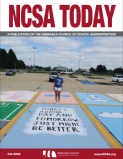Dr. Christopher M. Loofe
The purpose of this study is to evaluate the degree to which the Selective Abandonment budget process objectives were achieved by analyzing stakeholder perceptions. Use of this evaluation may enable the district to become more effective, efficient, and more fiscally responsible when developing future program budgeting plans. Program evaluation was used as a guideline for collecting data about the district's newly created Selective Abandonment budgeting process. Defined, Selective Abandonment is a process aimed to reduce or eliminate programs or services that fail a cost-benefit analysis and lack a clear, mission-related need. Specifically, this research will focus Daniel Stufflebeam's CIPP Model. The population included certified and classified staff, building level administrators and the Central Office Leadership team. Core principles from CIPP include key stakeholders making solid decisions, identifying and measuring the merit and worth of a program, additionally it provides a philosophy of evaluation and a practical framework for designing and conducting evaluation (Stufflebeam, 1971a). CIPP's product evaluation process was used as a guide for the evaluation process, from data collection to possible implications. As with many CIPP evaluations, this study included both formative and summative assessments. The evaluation of the Research School District Selective Abandonment budget process was formative in nature, while the process created, as a result of its implementation, was summative. Quantitative data was collected through a statistical analysis of Likert scale questions. Additionally, a qualitative analysis of the responses to open-ended questions administered to district level administration, building level administrators, as well as to all certified and classified staff within the Research School District was also completed. The results of this program evaluation indicate that the perceptions from certified and classified staff, building level administrators and central office leaders are in agreement that the Selective Abandonment process is (1) transparent, (2) well-received and (3) fair. The information gathered from this study suggests that the research school district should continue to utilize the Selective Abandonment budgeting process to review programs and/or services that should be considered for reduction and/or elimination.
























